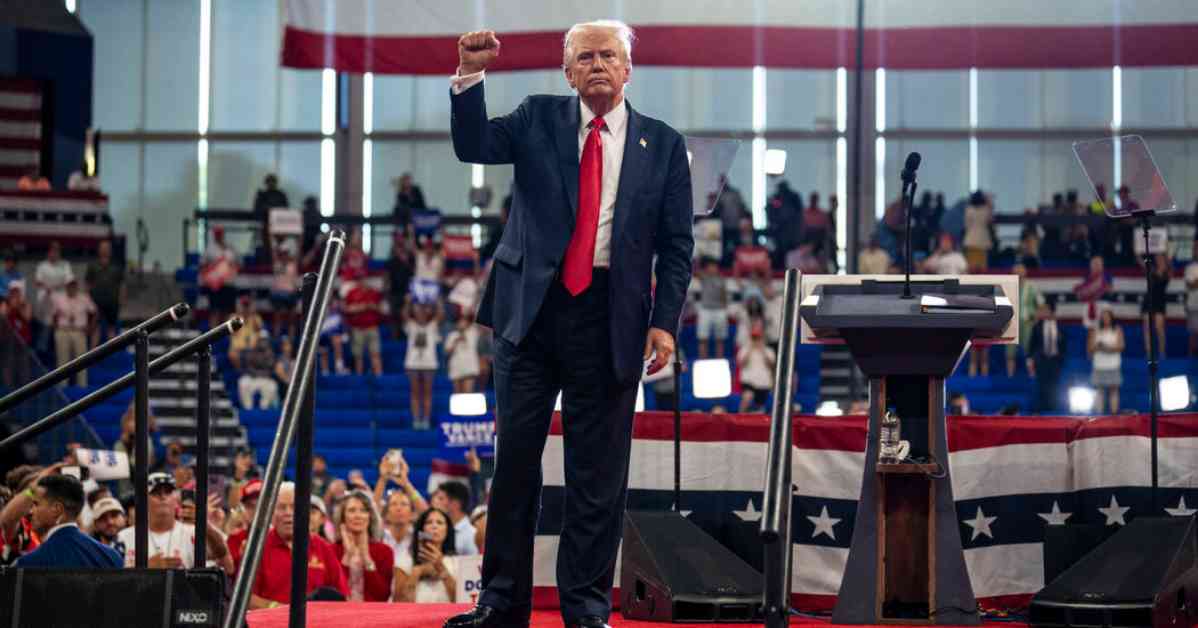At a rally in Atlanta, former President Donald J. Trump accused the governor of Georgia and the state’s top election official of trying to hinder his campaign efforts, claiming that they wanted him to lose without providing any evidence to support his allegations. He specifically called out Georgia’s Republican governor, Brian Kemp, and the secretary of state, Brad Raffensperger, both of whom are also Republicans, for being disloyal and making things difficult for him.
During the rally at the Georgia State University Convocation Center in Atlanta, Trump made false claims that he had won the state twice in the 2016 and 2020 elections, despite officially losing to President Biden in 2020 by approximately 12,000 votes. He expressed frustration at facing legal consequences for his attempts to overturn the election results in Georgia, suggesting that if Kemp and Raffensperger had cooperated with him, he might not have found himself in legal jeopardy.
Trump also criticized Kemp’s leadership, stating that the state had deteriorated under his watch, saying, “The state has gone to hell.” Representatives for Kemp and Raffensperger did not immediately respond to requests for comment on Trump’s accusations.
It is important to note that Trump’s claims of winning Georgia twice are not supported by factual evidence, as the official election results show that he lost the state in 2020. The former president’s ongoing efforts to challenge the election results have been met with legal challenges and pushback from state officials.
Trump’s rally in Atlanta reignited tensions surrounding the 2020 election and highlighted the deep divisions within the Republican Party in Georgia. The accusations against Kemp and Raffensperger further underscored the ongoing debate over the integrity of the election process and the role of state officials in certifying election results.
The rally served as a platform for Trump to voice his grievances and rally his supporters ahead of the upcoming election, but it also raised questions about the impact of his rhetoric on the political landscape in Georgia. As the state remains a key battleground in national elections, the controversy surrounding Trump’s claims and accusations could have far-reaching implications for the future of the Republican Party in Georgia and beyond.





















